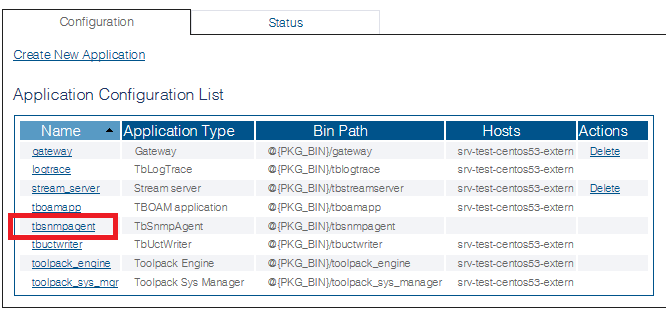Toolpack:Configuring tbSnmpAgent B
From TBwiki
(Difference between revisions)
m |
m (→Applies to version(s): v2.8.: Values -> values) |
||
| Line 17: | Line 17: | ||
[[Image:Snmp_cfg_2.png]] | [[Image:Snmp_cfg_2.png]] | ||
<br/><br/> | <br/><br/> | ||
| − | 4) Enter | + | 4) Enter values for the following parameters: |
*SNMP IP Port: the '''IP port''' to use for making SNMP requests (standard default value is 161) | *SNMP IP Port: the '''IP port''' to use for making SNMP requests (standard default value is 161) | ||
*SNMP System Description: the textual description that will appear when polling the '''sysDescr''' variable of the SNMPv2-MIB | *SNMP System Description: the textual description that will appear when polling the '''sysDescr''' variable of the SNMPv2-MIB | ||
Revision as of 12:45, 28 May 2015
Applies to version(s): v2.8.
Once you have successfully activated the tbSnmpAgent application, follow these steps to configure the SNMP system parameters:
1) Click Applications in the navigation panel.
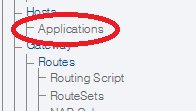
2) In the Application Configuration List, select tbsnmpagent.
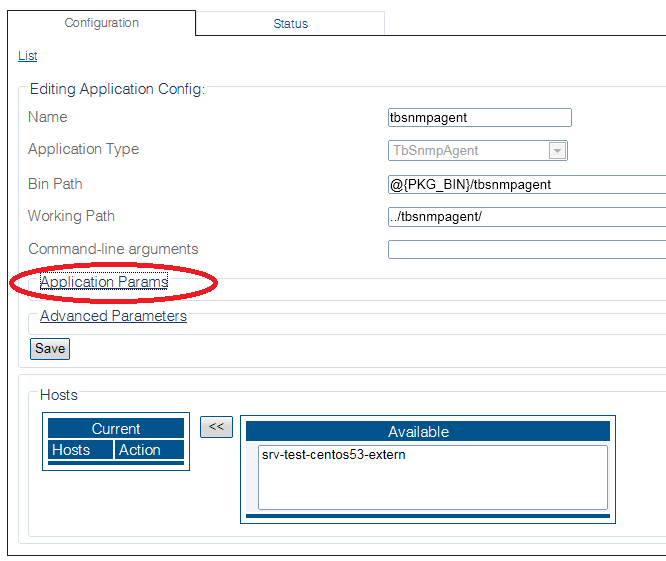
4) Enter values for the following parameters:
- SNMP IP Port: the IP port to use for making SNMP requests (standard default value is 161)
- SNMP System Description: the textual description that will appear when polling the sysDescr variable of the SNMPv2-MIB
- SNMP System Object ID: the value appended to TelcoBridges' value (.1.3.6.1.4.1.21776.3) for the SNMPv2-MIB variable sysObjectId**SNMP System Name: the textual description that will appear when polling the sysName variable of the SNMPv2-MIB
- SNMP System Location: the textual description that will appear when polling the sysLocation variable of the SNMPv2-MIB
- SNMP System Contact: the textual description that will appear when polling the sysContact variable of the SNMPv2-MIB
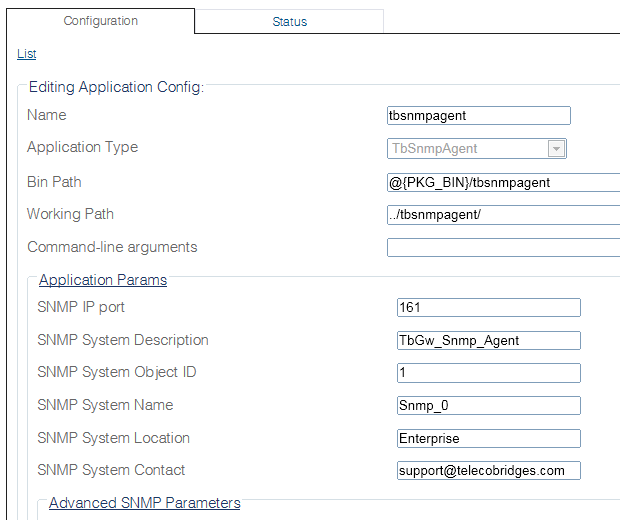
5) Click Advanced Params to view or change advanced settings for the following parameter(s):
- Polling delay to generate traps: sets the length (in seconds) for the time intervals at which the SNMP agent polls for newly generated traps.
- Use system names: indicates that SNMP uses the names interfaces of the system instead of the names interfaces generated by adapters.
- Click Save
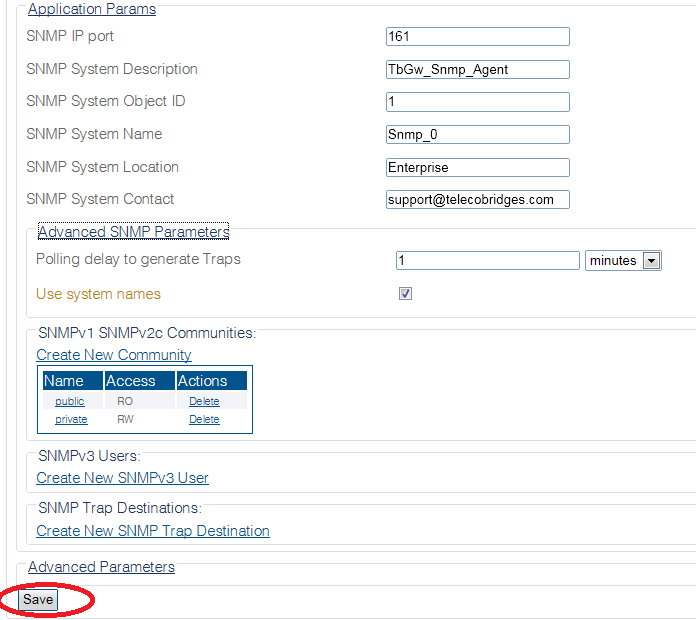
6) Verify that the ApplicationCfg was sucessfully updated message is displayed.
